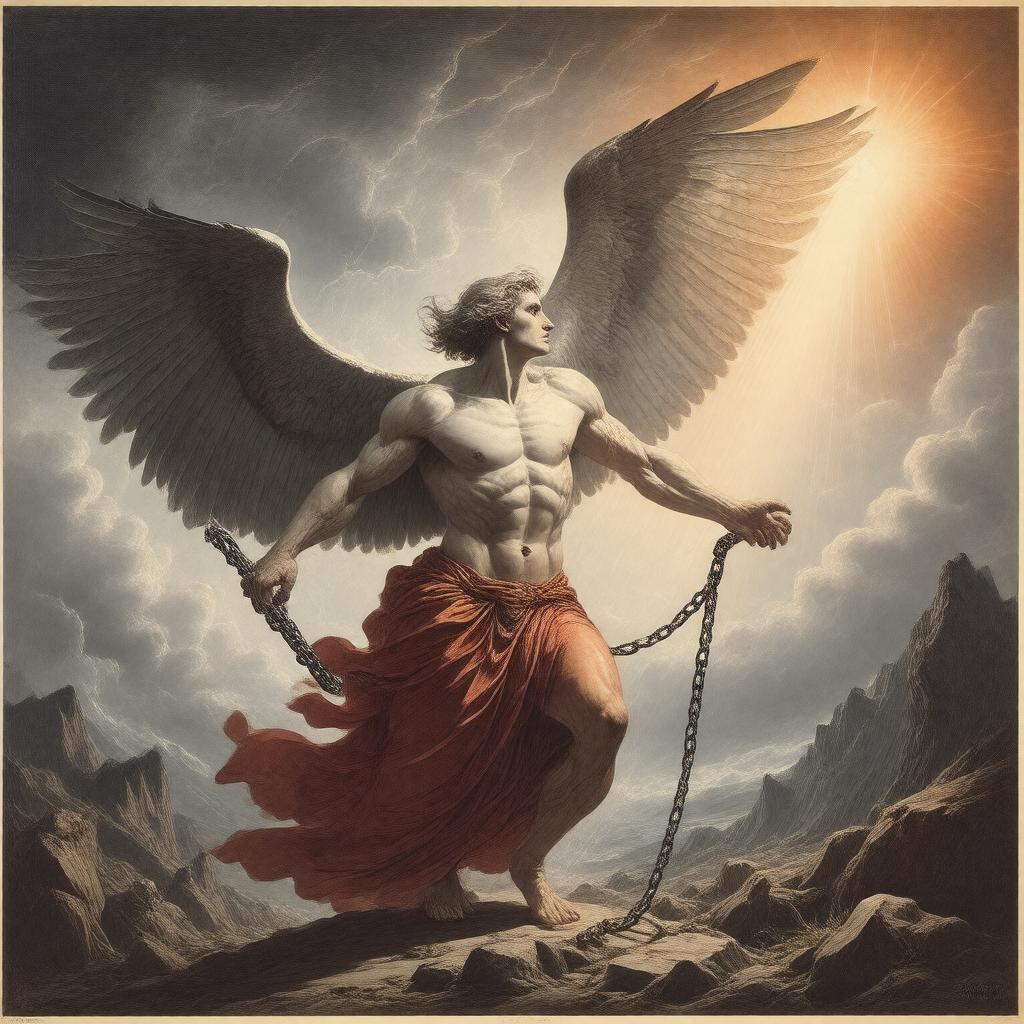Prompt
"Create an image representing the themes of freedom, redemption, and hope from Percy Bysshe Shelley's lyrical drama, Prometheus Unbound. Depict a dramatic scene from the play with Prometheus, a titan, unshackled and defiant against a backdrop of a stormy, mythological ancient world landscape. Incorporate symbolic elements that reflect the struggle for freedom and the power of hope, such as a broken chain, a soaring eagle, or a radiant light. Use a Romanticism-inspired art style, with bold brushstrokes and vivid colors, to convey the emotional intensity and revolutionary spirit of the play."

